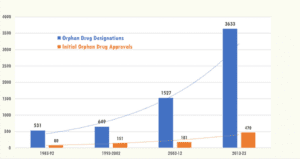There is no placebo effect…but we still need them!
That is the argument from an interesting post on the Carcinisation website titled “A Case Against the Placebo Effect“. In short, the authors argue that placebos in-and-of-themselves may have small impact out health outcomes. However, care practices in clinical trials may be different such that health outcomes improve or people feel more cared for in the short-run. I excerpt the author’s summary below:
The current scientific consensus is that the placebo effect is a real healing effect operating through belief and suggestion. The evidence does not support this. In clinical trials of treatments, outcomes in placebo and no-treatment arms are similar, distinguishable only in tiny differences on self-report measures. Placebo-focused researchers using paradigms designed to exploit demand characteristics (politeness, roleplaying, etc.) produce implausibly large effects, in many cases larger than the effect of fentanyl or morphine, but these studies measure response bias on self-report outcomes (at best). There is no evidence that placebos have effects on objective outcomes like wound healing. Three sources of evidence purport to show that the placebo effect is a real, objective phenomenon: brain imaging studies, the alleged involvement of the endogenous opioid system or dopaminergic system, and animal models. But the brain imaging studies do not demonstrate an objective effect, but are rather another way of measuring “response bias,” as subjects are capable of changing these measures voluntarily. Studies that claim to demonstrate the involvement of the endogenous opioid system suffer from replicability issues, with most positive results coming from a single laboratory genealogy; other laboratories produce conflicting results. Animal models also suffer from replicability issues, such that the highest-quality research is least likely to produce a placebo effect in animals. Even research designs that do produce a conditioned “placebo effect” in animals cast doubt on the involvement of the endogenous opioid system. In the era of open science, there has been no large-scale, multi-center, preregistered attempt to address the placebo effect in animal models or the involvement of the endogenous opioid system. The one adequately powered preregistered attempt for the dopaminergic system in humans produced no effect. Although placebo and “mind-cure” beliefs are widespread, the most parsimonious interpretation of the evidence is that the “placebo effect” is not a real healing effect, but a product of response bias and questionable research practices. The true power of the placebo is as a blind.
A very interesting article. It highlights the limitations of placebos but also why we need them for clinical research.



